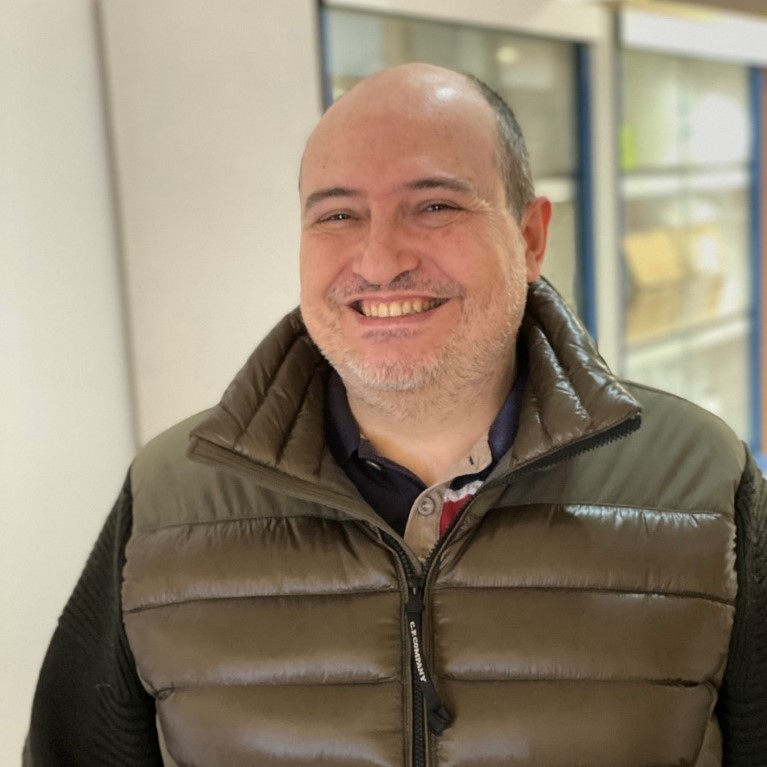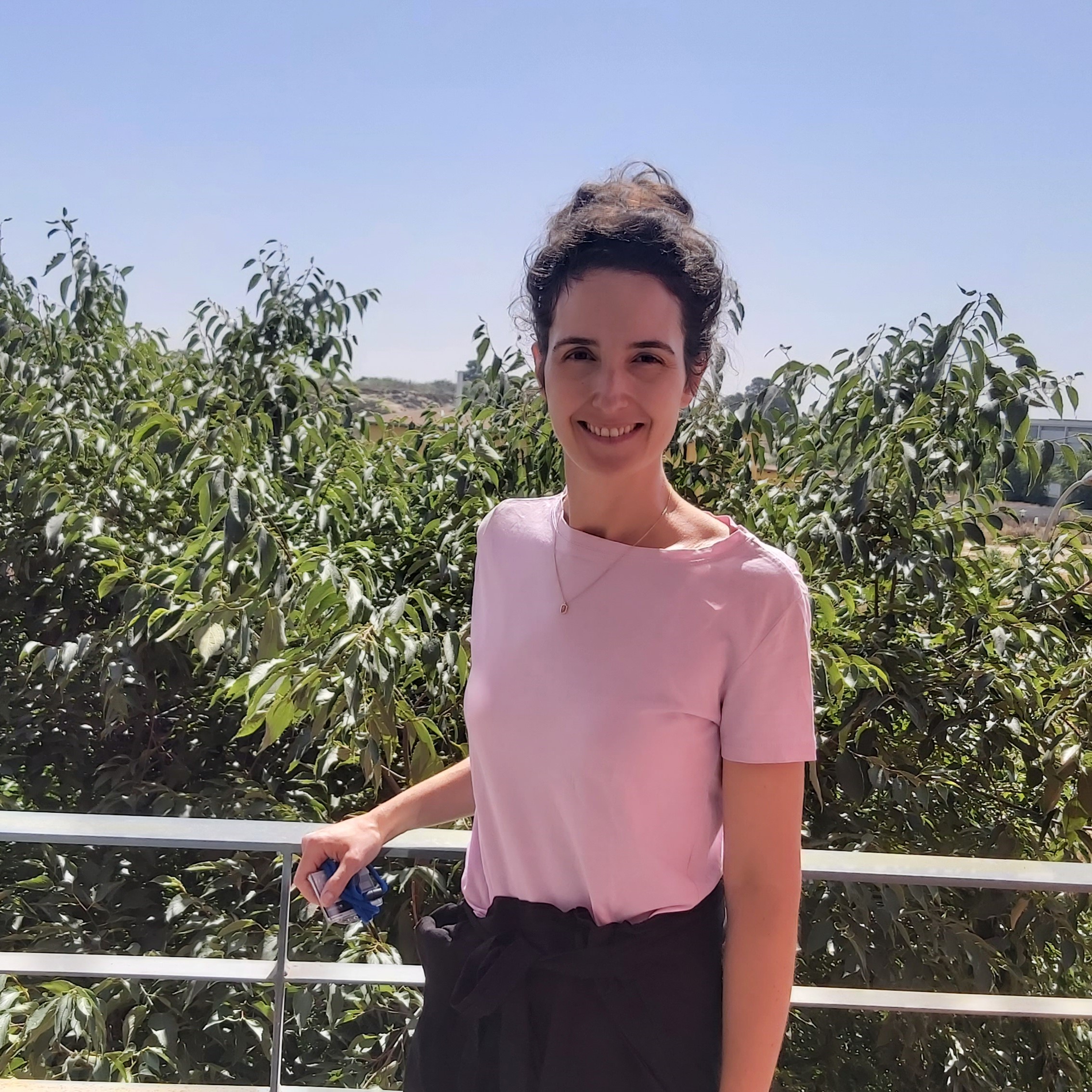
Why did you decide to go into research?
A bit unconsciously... A teacher gave me a subject related to research that I liked and I decided to go into this profession. It wasn't vocational and if I had to choose now, maybe I would do something else. My brother, for example, is a computer engineer and I would also have liked to do that.
You are part of the MARTE group, what do you research in your group?
The group we work in is analytical chemistry. What we do is develop analytical methods that have real-life applications. These applications are related to nanotechnology, characterisation of nanoparticles, cell analysis... Perhaps the part that has the most applications is clinical analysis. We are in charge of creating methods for the analysis of DBS (dried blood samples). This technique consists of depositing a small amount of blood on filter paper. The advantage is that you can do it at home, you send it to the laboratory and the analysis is done there, without having to go to the health centre. In some cases, this method is very interesting because of the convenience it brings, for example, in chronic patients or in rural life.
Any ongoing projects you would like to highlight.
We have just finished a cross-border project related precisely to the DBS method and now we want to launch another one along the same lines. These alternatives to venipuncture are much less invasive and are simply based on the puncture of a finger or heel and the deposition of a few drops of blood on a clinical filter paper. It is very useful and interesting and we want to do more research.
How long have you been involved with the I3A?
Around 10 years. It took me a long time to join a research institute and in the end, when I decided to do it, I chose this Institute.
Why did you choose the I3A?
Partly because I was advised to do so, I was told that it worked quite well. And, in addition, at that time my friend Nacho Garcés was the director, I spoke to him and I joined.
What would you highlight about the Institute?
It works very well, but it works well for everyone. Information is shared, things are discussed and we try to encourage collaboration between the different groups. This is quite strange in Spain, because there are structures that work well, but only for a few. We have a fairly democratic Institute in this sense. What's more, it is constantly growing, things are incorporated to promote projects, to improve communication... You can see that there is a will to improve.
What do you like most about your profession and what do you like least?
What I like the least, all the administrative and management issues that are becoming more and more important. We have had a digital transformation that, in principle, should make things simpler, but no, on the contrary, you almost have to do more things, what you used to do on paper and digitally.
What's more? The freedom to do research in the areas you find most interesting and to cooperate with people from all over the world.
Have your lines of research changed significantly?
You drift, working on different lines and choosing the ones you like the most, otherwise it would be very boring. If they work and succeed, they are already exhausted, if they don't succeed you can't stay there either, you have to change.
What would you say to someone who is thinking of going into research?
You shouldn't fool people, it's difficult, but if you have enthusiasm and desire you can do it. Besides, the university is now very old, and new vacancies have to be created. Research is something dynamic, when you have been doing it for many years and have tried many things, it is difficult to come up with revolutionary things. It has to be the young people who come up with new ideas.
UP CLOSE...
What did you study?: Chemistry at the University of Zaragoza.
He teaches... Analytical Chemistry on the Degree in Food Science and Technology.
A book or writer: I like old horror literature, I would say Lovecraft.
A film: Alone in the face of danger.
Hobbies: Playing basketball or doing Chi Kung, a technique related to Chinese medicine that relaxes me a lot with those administrative procedures.
Singer: Mark Knopfler or Bob Dylan.
A trip: I did the Interrail three times while I was doing my degree. I visited many countries.
Favourite place: Boston, I really like the Boston Celtics.
